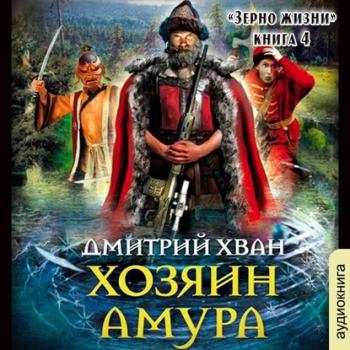Историческая фантастика
Различные книги в жанре Историческая фантастикаLonger Views
<P>"Reading is a many-layered process – like writing," observes Samuel R. Delany, a Nebula and Hugo award-winning author and a major commentator on American literature and culture. In this collection of six extended essays, Delany challenges what he calls «the hard-edged boundaries of meaning» by going beyond the customary limits of the genre in which he's writing. By radically reworking the essay form, Delany can explore and express the many layers of his thinking about the nature of art, the workings of language, and the injustices and ironies of social, political, and sexual marginalization. Thus Delany connects, in sometimes unexpected ways, topics as diverse as the origins of modern theater, the context of lesbian and gay scholarship, the theories of cyborgs, how metaphors mean, and the narrative structures in the Star Wars trilogy.</P><P>"Over the course of his career," Kenneth James writes in his extensive introduction, «Delany has again and again thrown into question the world-models that all too many of us unknowingly live by.» Indeed, Delany challenges an impressive list of world-models here, including High and Low Art, sanity and madness, mathematical logic and the mechanics of mythmaking, the distribution of wealth in our society, and the limitations of our sexual vocabulary. Also included are two essays that illustrate Delany's unique chrestomathic technique, the grouping of textual fragments whose associative interrelationships a reader must actively trace to read them as a resonant argument. Whether writing about Wagner or Hart Crane, Foucault or Robert Mapplethorpe, Delany combines a fierce and often piercing vision with a powerful honesty that beckons us to share in the perspective of these Longer Views.</P>
Evaporating Genres
<P>In this wide-ranging series of essays, an award-winning science fiction critic explores how the related genres of science fiction, fantasy, and horror evolve, merge, and finally «evaporate» into new and more dynamic forms. Beginning with a discussion of how literary readers «unlearned» how to read the fantastic during the heyday of realistic fiction, Gary K. Wolfe goes on to show how the fantastic reasserted itself in popular genre literature, and how these genres themselves grew increasingly unstable in terms of both narrative form and the worlds they portray. More detailed discussions of how specific contemporary writers have promoted this evolution are followed by a final essay examining how the competing discourses have led toward an emerging synthesis of critical approaches and vocabularies. The essays cover a vast range of authors and texts, and include substantial discussions of very current fiction published within the last few years.</P>
Fire in the Stone
<P>The genre of prehistoric fiction contains a surprisingly large and diverse group of fictional works by American, British, and French writers from the late nineteenth century to the present that describe prehistoric humans. Nicholas Ruddick explains why prehistoric fiction could not come into being until after the acceptance of Charles Darwin's theories, and argues that many early prehistoric fiction works are still worth reading even though the science upon which they are based is now outdated. Exploring the history and evolution of the genre, Ruddick shows how prehistoric fiction can offer fascinating insights into the possible origins of human nature, sexuality, racial distinctions, language, religion, and art. The book includes discussions of well-known prehistoric fiction by H.G. Wells, Jules Verne, J.-H. Rosny A&#238;n&#233;, Jack London, William Golding, Arthur C. Clarke, and Jean M. Auel and reminds us of some unjustly forgotten landmarks of prehistoric fiction. It also briefly covers such topics as the recent boom in prehistoric romance, notable prehistoric fiction for children and young adults, and the most entertaining movies featuring prehistoric humans. The book includes illustrations that trace the changing popular images of cave men and women over the past 150 years.</P>
Trouble on Triton
<P>In a story as exciting as any science fiction adventure written, Samuel R. Delany's 1976 SF novel, originally published as Triton, takes us on a tour of a utopian society at war with… our own Earth! High wit in this future comedy of manners allows Delany to question gender roles and sexual expectations at a level that, 20 years after it was written, still make it a coruscating portrait of «the happily reasonable man,» Bron Helstrom – an immigrant to the embattled world of Triton, whose troubles become more and more complex, till there is nothing left for him to do but become a woman. Against a background of high adventure, this minuet of a novel dances from the farthest limits of the solar system to Earth's own Outer Mongolia. Alternately funny and moving, it is a wide-ranging tale in which character after character turns out not to be what he – or she – seems.</P>
Silent Interviews
<P>Samuel R. Delany, whose theoretically sophisticated science fiction and fantasy has won him a broad audience among academics and fans of postmodernist fiction, offers insights into and explorations of his own experience as writer, critic, theorist, and gay black man in his new collection of written interviews, a form he describes as a type of «guided essay.» Gathered from sources as diverse as Diacritics and Comics Journal, these interviews reveal the broad range of his thought and interests.</P>
The Seven Beauties of Science Fiction
<P>As the world undergoes daily transformations through the application of technoscience to every aspect of life, science fiction has become an essential mode of imagining the horizons of possibility. However much science fiction texts vary in artistic quality and intellectual sophistication, they share in a mass social energy and a desire to imagine a collective future for the human species and the world. At this moment, a strikingly high proportion of films, commercial art, popular music, video and computer games, and non-genre fiction have become what Csicsery-Ronay calls science fictional, stimulating science-fictional habits of mind. We no longer treat science fiction as merely a genre-engine producing formulaic effects, but as a mode of awareness, which frames experiences as if they were aspects of science fiction. The Seven Beauties of Science Fiction describes science fiction as a constellation of seven diverse cognitive attractions that are particularly formative of science-fictionality. These are the «seven beauties» of the title: fictive neology, fictive novums, future history, imaginary science, the science-fictional sublime, the science-fictional grotesque, and the Technologiade, or the epic of technsocience's development into a global regime.</P>
Сотник из будущего. Балтийский рейд
На Балтике идёт ожесточённая война между владычицей северных морей Данией и союзницей Великого Новгорода Ганзой. Боевые действия развернулись как на море, так и на суше. Две огромные, по меркам средневековья, армии: короля Дании Вальдемара II "Победоносного" и союза северо-немецких земель с вольными городами Ганзы готовы сойтись в решающей битве. Остаться в стороне у русского Новгорода уже не получится. Нужно принять участие в этой войне. Перед сформированной Андреевской бригадой поставлена задача – совершить дерзкий рейд по Балтике и, прорвавшись с боями, встать в общий строй со своими союзниками. Умереть или победить, покрыв себя славой! Так уж повелось издревле, что свой союзнический долг Русь платит кровью!
Классные ворота
Москва 2050 года – город-музей, в районах которого одновременно разворачиваются сцены из самых разных исторических периодов. Восьмилетняя Роза и её дедушка отправляются на давно обещанную экскурсию.
Хозяин Амура
Все глубже проникает в окружающий мир держава, основанная нашими современниками в глубине Сибири XVII века. Все труднее приходится и ее руководителям, и рядовым гражданам. С каждым годом все больше вызовов выпадает на долю ангарцев. Жизнь человека – это всего лишь мгновение в существовании цивилизации, но за этот короткий срок Соколову и его товарищам необходимо оставить потомкам тот задел, который поможет им выжить в будущем. В Европе все еще продолжает бушевать Тридцатилетняя война, но ход ее уже не тот. В Московской Руси вновь назревает смута и кровавая борьба за власть – претенденты на трон готовятся к схватке. Ангарцы, не особенно того желая, вновь попадают в историю – укрывают у себя спасающихся людей проигравшей стороны конфликта. Не накликают ли они этим поступком на себя беды?..
Месяц в библиотеке
В Центре вселенского разума группа историков изучает пути развития цивилизаций по всей Вселенной. Антон Эстерский прибывает в Москву 1 июня 2050 года и направляется в Библиотеку им. Ленина с намерением перечитать все газеты и журналы, все правительственные указы и узнать, как изменялась система принятия решений. В библиотеке он выбирает себе в помощники самого старого и опытного робота-библиографа. После трех недель работы Антон чувствует, что совсем не продвинулся в решении задачи. Замечает это и робот. Робот предлагает Антону обрисовать задачу подробнее. В голове Антона пробегает повествование его истории и исследовательской неудачи, но он вовремя останавливает себя, понимая, что нельзя поддаться минутной слабости. Однако робот оказывается способным уловить идею исследования и переориентирует Антона с изучения газет и журналов на изучение художественной литературы. Через два месяца с начала командировки Антон находит ответ и первого июля 2050 года покидает Москву.









